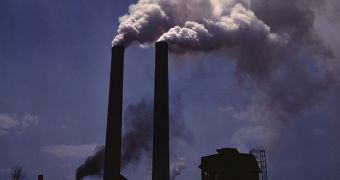A group of researchers from the University of Exeter recently led a team of investigators from China, France, the United States and Germany in a new study of how the sensitivity of our planet's carbon cycle has evolved in relation to variations in tropical temperatures over the past half a decade.
According to the study, it would appear that the cycle is two times more sensitive to these variations, a significant change to occur in just 50 years. Usually, climate scientists work with time scales larger than a century, so this change is abrupt by their standards.
Details of the new study were released by the University of Exeter today, and appear in a recent issue of the top scientific journal Nature. The work highlights a mechanism through which tropical environments increase the amount of carbon dioxide they release into the atmosphere annually.
The Nature paper reveals that, with each 1-degree rise in average tropical temperatures, the amount of CO2 released by tropical ecosystem increases by 2 billion tons from similar rises recorded in the 1960s and 1970s. Over a few decades, this amount of carbon can have severe effects in boosting global warming and climate change around the world.
The new study was led by Exeter professors Peter Cox, from the College of Engineering, Mathematics and Physical Sciences, and Pierre Friedlingstein, who specializes in global carbon cycle studies.
“The year-to-year variation in carbon dioxide concentration is a very useful way to monitor how tropical ecosystems are responding to climate. The increase in carbon dioxide variability in the last few decades suggests that tropical ecosystems have become more vulnerable to warming,” Cox explains.
“Current land carbon cycle models do not show this increase over the last 50 years, perhaps because these models underestimate emerging drought effects on tropical ecosystems,” adds Friedlingstein.
Peking University investigator and lead study author, Xuhui Wang, says that these results may be used to gain a deeper understanding of how the terrestrial carbon cycle has changed over the past 50 years, potentially leading to new data on how global warming will affect the world in the near future.

 14 DAY TRIAL //
14 DAY TRIAL //